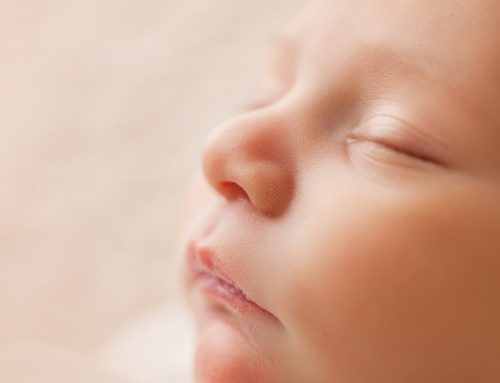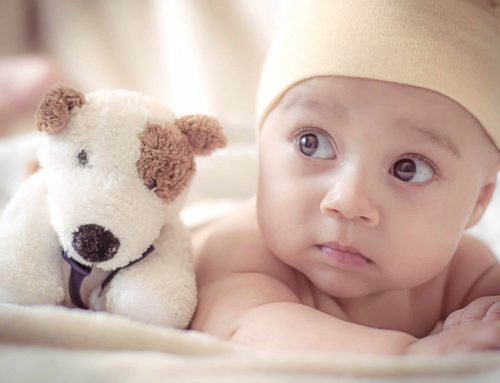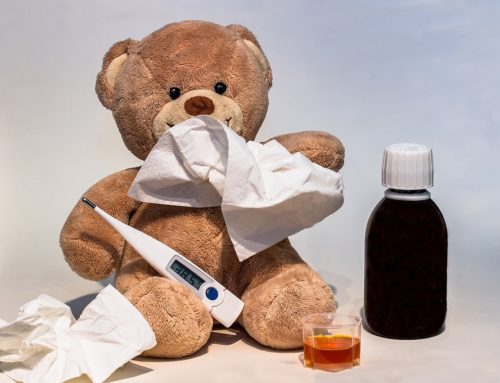Anu was a ‘spitty’ baby. Right from the first week of her birth, she would spit up milk. Sometimes it would come out immediately after the feed. Sometimes, she would keep spitting (curdled milk) at regular intervals in between her feeds.
As a first time mother, while I was getting accustomed to my new born’s seemingly continuous feed, burp, sleep, pee, poop cycle (in any order), this period left me exhausted and sometimes even numbed (particularly the first 4-6 weeks after Anu’s birth). Sleep became a distant dream :-).
To add to this craziness, my baby would bring out milk from her mouth after almost every feed (I called it ‘vomiting’ but she was just ‘spitting’ milk, and there is a difference between spitting and vomiting in infants). Her spitting happened even after burping her and holding her upright for 10 minutes (without fail) immediately after every feed. Every time she would spit, I feared that at least half her feed came out. Finally, I consulted with our paediatrician since I was scared that she had an underlying condition, due to which her spitting didn’t stop even after a few weeks of her birth.
Spitting feed is normal in babies
Our paediatrician informed about the difference between vomiting (which is the forceful ejection of stomach contents) and spitting (which is trickling out of stomach contents) in babies. Paediatrician put to rest my fears and said that Anu was spitting milk, which is normal in infants and is usually medically harmless. Following is quite normal in babies, about spitting:
- Spitting up (2-3 spoons of feed) after every feed
- Spitting up immediately after a feed (usually when burped) or even after an hour or more post feed
- Spitting up once or multiple times after feed (in a small amount)
- Spitting stops anywhere between 6-12 months, usually without any intervention
- Spit up milk (or curdled milk) *appears* a lot in quantity than it actually is
Usual causes and signs of harmless spitting
Some of the reasons that can cause the (medically) harmless spitting of feed-in infants are:
- Greedy/excess drinking: Baby drinks too fast, or mother has fast let down, or breasts are over full.
- Immature digestive system: Valve connecting food pipe to stomach not fully developed, to prevent food in stomach going back to the mouth via food pipe
- Swallowing air during feeding: Due to poor latching, or baby pulling off from breast
- Baby milestones: e.g. teething, starting solids, etc.
In our case, Paediatrician said even though Anu was frequently spitting, since she showed following good signs, her spitting seemed medically harmless:
- Feeding well without any evidence of discomfort or arching of the back
- Healthy weight gain
- Normal peeing and pooping
- Overall activeness and cheerfulness
- Spitting was trickle down from mouth and not forceful vomit with projectile
In infants, such harmless spitting usually stops, without any medical intervention, anytime between 6-12 months of baby’s age.
Preventive measures and Cleaning efforts
Though Anu’s spitting was not a medical concern, we took recommended steps to reduce spitting, or a possibility of infection due to milk deposit and regimented cleaning efforts to reduce laundry, like:
- Burped and held her upright for 15-20 minutes after every feed
- Used wedge pillow to keep her at an inclined position on her back
- Put a bib/burp cloth on her (no bib while sleeping till she had neck control) to catch/wipe spit milk
- Used wet cloth to wipe her face, chin and especially her neck after she spits
- Changed her soiled clothes frequently
- Put protector sheets on all mattresses at home where she would possibly be (and soil it)
- Kept a separate pail to collect milk stained clothes and sheets
Wedge pillow was a blessing for us. It ensured she remained on her back at an inclined position (from lower back and above), reducing chances of milk coming out. Instead of using a wedge pillow, you can either incline baby’s bed or create an inclination with folded sheets.
Since Anu wore a bib most of the times, I used to joke that her bib was her cape worn in front :-).
Cleaning my baby’s face and neck with water or wet cloth, each time she spat milk, helped prevent possible infection since milk settled increases of baby’s skin can be easily missed and cause infection.
Based on my experience, I would like to recommend bed/mattress protector sheets if your baby spits feed frequently. It is easier to clean bed sheets and clothes, but milk deposits on beds are tough to clean (since milk can easily percolate deep down) and usually require deep cleaning, else may cause fungal growth. Even her wedge pillow had a protective plastic sheet.
Preventive measures can reduce spitting only to some extent, and additional laundry efforts are inevitable. While using a bib or burp cloth did lessen the number of clothes that were soiled daily due to my baby spitting feed, having a separate pail for such soiled clothes streamlined cleaning efforts. If the milk deposits remain on clothes even after washing, it can cause bacterial growth. To prevent it, we scrubbed off milk stains, daily before washing baby’s clothes.
Handling social unawareness about spitting in baby
Many people are alarmed and almost always panic when they see a baby spitting milk. My husband I had one or two guests who eagerly picked up Anu but almost dropped her when milk came dribbling out of her mouth :-|. So we both inculcated a habit to gently inform friends/family members/guests, who wanted to pick her up especially the first time, about the possibility of her spitting milk. This gentle instruction was to ensure that they do not panic when the baby spits her feed.
It is tough for many people to believe that spitting feed is usually normal in infants under 6-12 months of age. In our experience, people would often express concern followed by unsolicited advice. My husband and I did not let such social commentary bother us. In fact, surprisingly, I used to explain (very patiently) why such spitting is normal in infants.
By the time Anu for around seven months old, her spitting stopped (it was around the same time she started sitting without support … don’t know if there is a correlation).
When spitting can actually be a problem
Although spitting feed is normal in babies, it is not always normal. Following are some of the signs in the baby which should not be ignored when spitting occurs regularly:
- Instead of gentle trickling of feed from the mouth, the baby has forceful vomits, especially in projectile motion
- Poor weight gain or weight loss
- Arching of back when feeding
- Constant discomfort in a baby
- Difficulty in feeding
- Breathing problems
- Persistent coughing without apparent cold or mucous discharge
- Unusual vomit (greenish or stained with blood)
- Note: If you observe one or more of the above signs, please consult your paediatrician immediately.





Leave A Comment